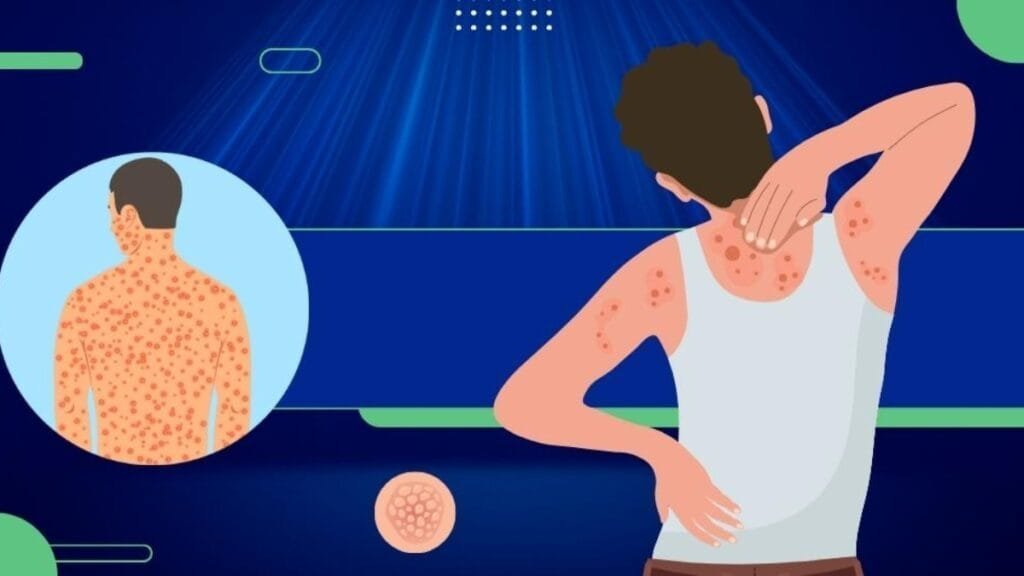New Delhi [India], November 22: Psoriasis is a chronic autoimmune disease that affects the skin cells and makes a thick scaly patches that can cause discoloration. It appears on the scalps, knees, elbows, and lower back area and can also be displayed on various body parts. The severity of psoriasis varies greatly from person to person. The understanding of the different stages of psoriasis is highly important to achieving the right treatment.
In this post, we attempt to understand the different stages of psoriasis. How they influence the approach to treatment, and why going to an expert like Dr. Yogesh Vani, a well-known practitioner of Ayurvedic medicine and psoriasis expert in Vadodara, can give significant relief and long-term management.
What Are the Different Stages of Psoriasis?
Psoriasis is not all the same. It progresses through many stages, and every successive stage requires a well-tailored treatment plan. The main stages of psoriasis include:
1. Initial Onset (Early Stage)
2. Progressive Stage
3. Stable Stage
4. Flare-ups (Exacerbation)
5. Remission (Healing Phase)
Initial Onset (Early Stage)
It is hardest to diagnose is often the very first stage of psoriasis. Most people have psoriasis symptoms in the way of red skin with silvery-white scales. A range of environmental triggers, including infections, stress, or injury to the skin, may increase this stage. Early recognition of pre-attack signs may prevent further attacks and assist in the choice of appropriate treatment.
Treatment Focus
During the early stage, the aim is to decrease inflammation and prevent a highly turned-over skin cell. Ayurveda offers holistic insight into the curative process of early psoriasis symptoms through an attempt to restore the balance of internal energies in the body.
Progressive Stage
The rapid multiplication of cells in the skin is associated with the progressive stage, which forms thick plaques of scaly skin in large areas. This stage may appear to be painful and itchy more than before. By this stage, the psoriasis may also have become resistant to conventional treatments, which is why personalised care is very important in any activity.
Treatment Focus
At this point, treatments attempt to stop skin cell turnover and decrease inflammation. Ayurvedic treatments, led by a qualified practitioner such as Dr. Yogesh Vani, can be invaluable in helping the body regain its balance with regard to its immune responses related to the causes that have led to this condition.
Stable Stage
The stable stage applies when the psoriasis symptoms are controlled, and there are few flare-ups. The plaques could well appear, but they tend not to be as inflamed. Managing this condition in this stage requires keeping the gains of the previous stages and preventing future flare-ups.
Treatment Focus
The objective of stable status is to maintain remission and prevent relapse. Appropriate Ayurvedic treatments are herbal remedies, detoxification therapies, and lifestyle modifications that help improve the body’s immunity mechanism and minimise the activity of psoriasis.
Flare-ups (Exacerbation)
Psoriasis flare can strike at any moment and may be present in patients with stable conditions. Generally, it is the action of several factors like stress or infections, weather changes, or even when one is under certain medications that bring about these flare-ups. The symptoms can be manifesting urgently when they resurface.
Treatment Focus
Flare-ups should be treated promptly and effectively to reduce inflammation and avoid further damage to the skin. Ayurveda-based approaches offer relief through anti-inflammatory herbs, detox therapies, and diet plans are tailored according to the variety of triggers that cause psoriasis flare-ups.
Remission (Healing Phase)
It actually enters remission in some cases, with the psoriasis symptoms remaining dormant or even completely disappearing, at least until a point. This is taken to be a chronic disease, psoriasis is not one that stays in remission permanently. To maintain the healing phase, this disease must be treated and taken care of continuously.
Treatment Focus
Thus, more than healthy skin, maintenance of remission would be about the control over a relapse. The Ayurvedic treatments focus on the improvement of immunity, detoxification of the body, and stress reduction, three important dimensions for long-term management of psoriasis.

How Psoriasis Stages Affect Treatment
Each phase of psoriasis needs to be treated with the help of a specific modality that will take care of the symptoms and prevent such from arising again in the future. While topical creams, phototherapy, and systemic medications are all being used as traditional methods of treatment, this disease is far from curable.
‘Psoriasis treatment has to be holistic in scope and action-symptoms along with the underlying causes. The individual has to be considered as a whole entity, understanding how mind, body, and environment are interconnected to the Ayurveda.
Ayurvedic Solutions for Psoriasis: A Personalized Approach
Ayurveda has provided vast treatments that involve the three Doshas in the body: Vata, Pitta, and Kapha, which detoxify the system, reduce inflammation, and are cited as some of the most effective Ayurvedic treatments for psoriasis in Ahmedabad.
1. Herbal treatments: Herbal remediation with neem, turmeric, aloe vera, and Triphala is used to help remove toxins that cause less inflammation on the skin.
2. Detoxification Therapy Panchakarma Therapy: Purifying treatments to cleanse the body of toxins and restore equilibrium.
3. Dietary Adaptations: A tailor-made Ayurvedic diet, according to your constitution, can lead to effective management of inflammation and flare.
4. Stress Management: Yoga, meditation, and pranayama will be essential in managing the stresses that usually trigger eruptions of psoriasis.
Conclusion
Understanding the various stages of psoriasis is the first and most important step toward effective treatment. When you are in the early stages of psoriasis, during a flare-up, or taking care of the condition at remission, a tailored treatment plan acts as your best hope. Conventional treatments may check out the symptoms, but Ayurveda directly involves treating the cause. Thus creating sustained relief and helping a person have healthier skin overall.
If you suffer from psoriasis and are looking for a natural holistic approach, visit Dr. Yogesh Vani today to learn how Ayurveda can help in your management and treatment. If you are interested in learning more or scheduling an appointment with the doctor.
Disclaimer: The article is for general information purposes only and should not be construed as professional medical advice. Always consult your doctor before taking any step.




